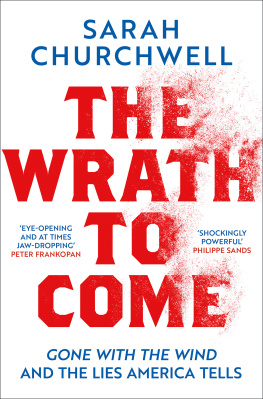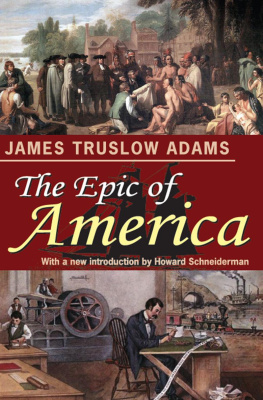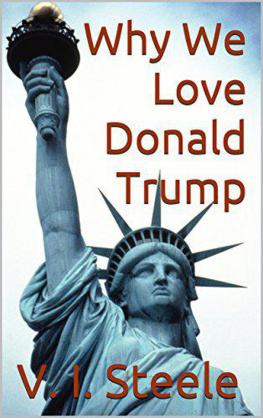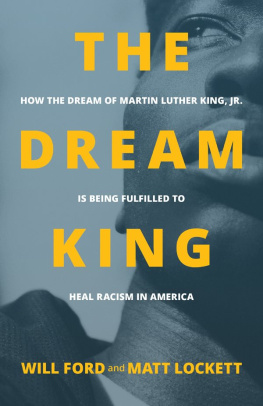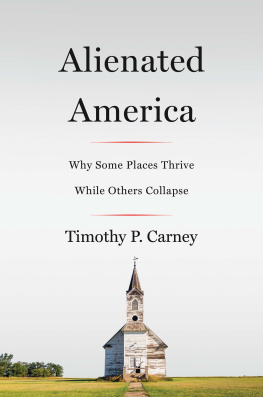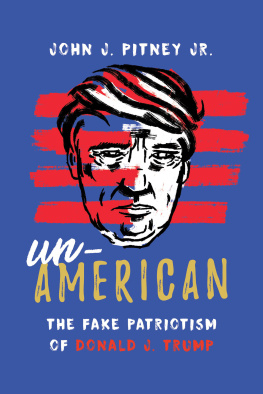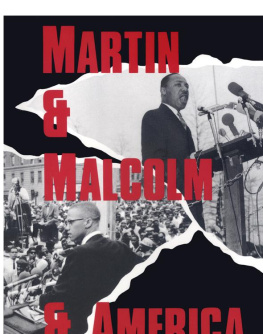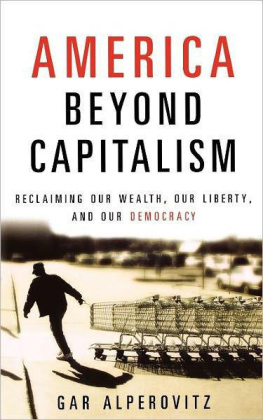BEHOLD, AMERICA
ALSO BY SARAH CHURCHWELL
The Many Lives of Marilyn Monroe
Careless People: Murder, Mayhem and the Invention of The Great Gatsby

CONTENTS
Images Getty Images
Image Chicago Defender
Image Granger Historical Picture Archive/Alamy Stock Photo
Image Associated Press
Oh, critic and cynic, dreamer and doubter, behold America, as this day she stands before her history and her heroes. See her millions of people, her free institutions, her equal laws, her generous opportunities, her schoolhouses and her churches; you see misfortunes and defects, for not yet is fully realized the American dream; you surely see her mighty progress toward the fulfillment of her philosophy.
Oration in honour of President Ulysses S. Grant, 1895
It was an effort toward some commonweal, an effort difficult to estimate, so closely does it press against us all
F. Scott Fitzgerald, 1933
There is great power in loaded phrases, as anyone willing to pull the trigger knows.
Sadly, the American dream is dead, Donald Trump proclaimed on 16 June 2015, announcing his candidacy for president of the United States. It seemed an astonishing thing for a candidate to say; people campaigning for president usually glorify the nation they hope to lead, flattering voters into choosing them. But this reversal was just a taste of what was to come, as Trump revealed an unnerving skill at twisting what would be negative for anyone else into a positive for himself.
By the time he won the election, Trump had flipped much of what many people thought they knew about America on its head. In his acceptance speech Trump again pronounced the American dream dead, but promised to revive it. We were told that the American dream of prosperity was under threat, so much so that a platform of economic nationalism carried the presidency.
Reading last rites over the American dream was shocking enough. But throughout the campaign Trump also promised to put America first, a pledge renewed in his inaugural speech in January 2017. It was a disquieting phrase for a presidential candidate, and then president-elect, to keep using. Think pieces on the history of America first began to sprout up in the national press and on social media, informing their audiences that the slogan America first stretches back to the Second World War, and to the efforts of the America First Committee to keep the United States out of the European conflict. America first had been invented by high-profile isolationists like Charles Lindbergh, they explained, whose sympathy with the Nazi project was often inextricable from an avowed anti-Semitism. America first, they said, was a code for neo-Nazism.
Meanwhile, other pundits were weighing in on the American dream, as writers asked if it was indeed dead., that dream was widely viewed as under threat, a story that had been endlessly recycled across the international press for the decade since the financial crisis beginning in 2007. Trump had weaponised this inequality, they said, convincing his followers that only an outsider could redeem a corrupt system. (That he was in fact a plutocratic insider, a self-styled billionaire corporate tycoon, was hardly the last bit of cognitive dissonance his followers were prepared to disavow.)
But most did not question what the American dream meant; they only debated its relative health. A Guardian editorial from June 2017, for example, called Is the American Dream Really Dead?, summed up not only the questions everyone was asking, but the premises from which they began.
The United States has a long-held reputation for exceptional tolerance of income inequality, explained by its high levels of social mobility. This combination underpins the American dream initially conceived of by Thomas
Few would dispute any of this: the American dream is widely understood as a dream of personal opportunity, in which opportunity is gauged primarily in economic terms, and those opportunities are shrinking. The idea that the American dream was initially conceived by Jefferson is similarly axiomatic, despite the fact that happiness and opportunity are not, in fact, synonymous.
But what Jefferson conceived at least in terms of life, liberty and the pursuit of happiness was a dream of democratic equality. He doesnt mention economics, or opportunity, for good reason. In fact, Jefferson took John Lockes phrase, life, liberty and property, and changed property into happiness. While it is true that in the eighteenth century happiness was often used to mean flourishing, which can clearly imply prosperity, Jefferson nonetheless removed specific economic guarantees from the nations founding entitlements. Democratic equality and economic opportunity are not the same thing, but the American dream has, for decades, been used as if they are.
The Guardian piece ends by noting the self-defeating nature of the dream as understood in these terms. Ironically, part of the problem may actually be the American dream Indeed, the dream, with its focus on individual initiative in a meritocracy, has resulted in far less public support than there is in other countries for safety nets, vocational training, and community support for those with disadvantage or bad luck. The dream is of the individual capitalist striving in a free-market world, one that is inimical to the safety nets of social democracy. Again, this understanding of the dream is entirely typical of how it is construed today not just by Americans, but around the world.
But although this meaning of the dream is unquestionably the one Americans inherited, this book will show that it is exactly the reverse of the ideas the American dream was coined to advance. Gradually in 2017 a few writers began to notice that the American dream had once included higher dreams of personal fulfilment, beyond the wish to live in an up-to-date department store (as an American historian put it back in 1933). is, in fact, the least of the expressions changes in meaning.
The Oxford English Dictionary defines the American dream as the ideal that every citizen of the United States should have an equal opportunity to achieve success and prosperity through hard work, determination, and initiative. Certainly Americans have always built individual aspiration into a mythology. But upward social mobility is not an idea associated with the expression the American dream until much later than most people think a fact that has profound implications for the cultural and political fight the US (and indeed much of the West) now finds itself in, for how America sees itself and its own promises.
The received wisdoms about America first are similarly misunderstood or delimited including those offered by eminent historians. Timothy While it is true that America first always included many populists and white supremacists, it is not true that it emerged in response to the welfare state that was created in the 1930s, or that it represented a nostalgia for the period before the 1930s. In fact, the phrase was popularised well before the 1930s, and the nostalgias it represented were considerably more complicated than this abbreviated, widely recycled, version of its origins suggests.
By 1940 America first had been entangled in Americas political narrative for decades. Charles Lindbergh and the America First Committee of 1940 were not the beginning of the story of America first. They were the end until Donald Trump resuscitated the term.
And the American dream isnt dead, either we just have no idea what it means any more.
Behold, America tells the history of these two loaded phrases, a tale that upends much of what we thought we knew about both, perhaps even about America itself.
Next page

